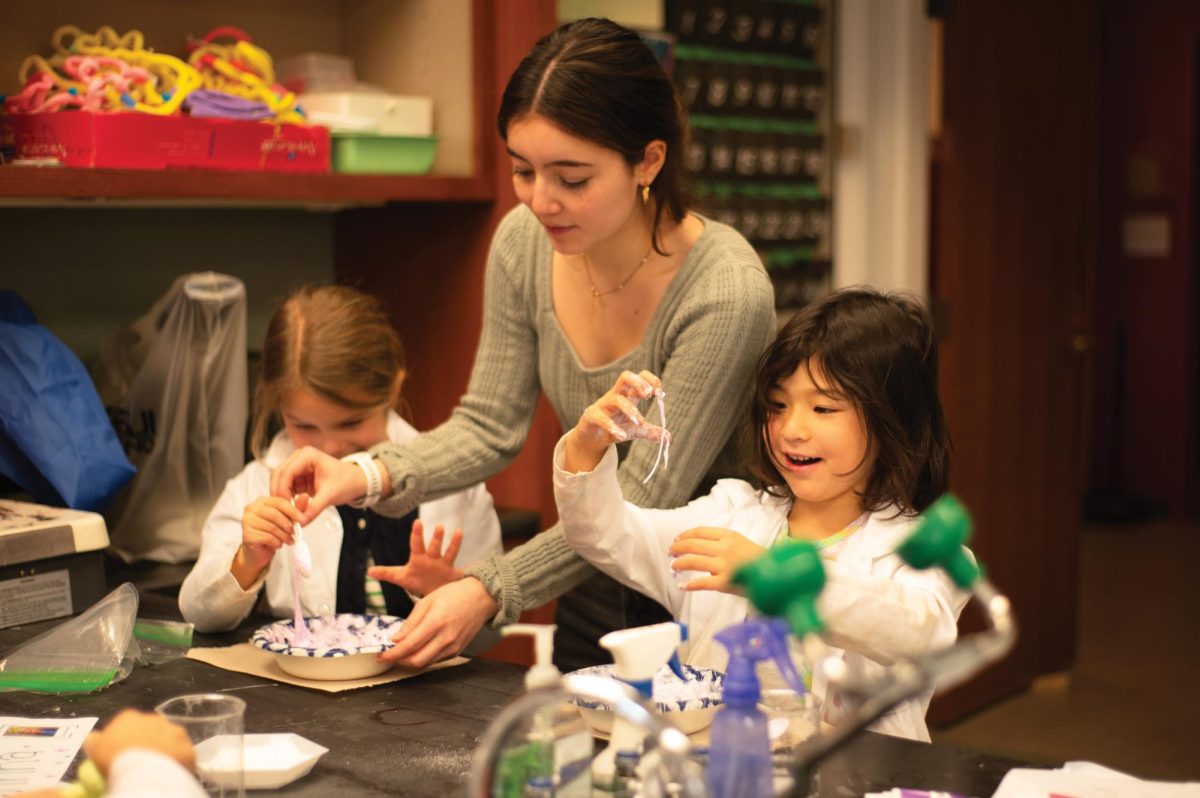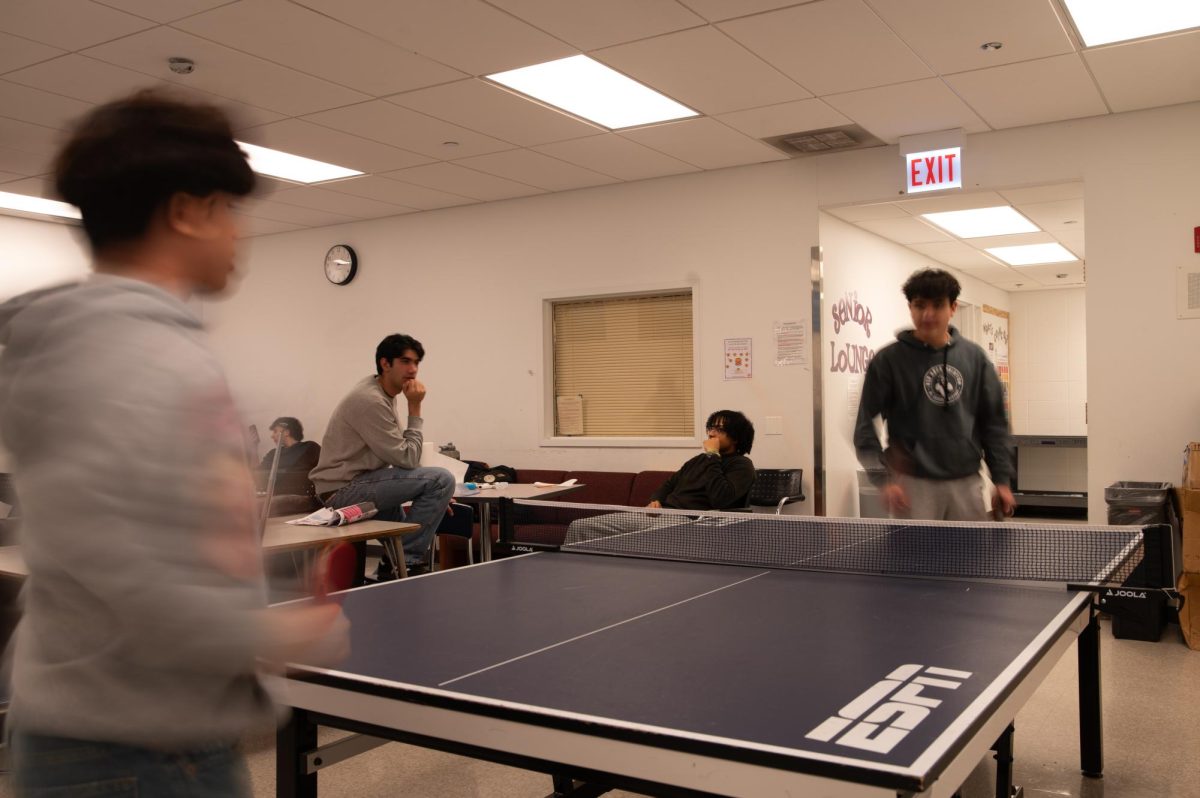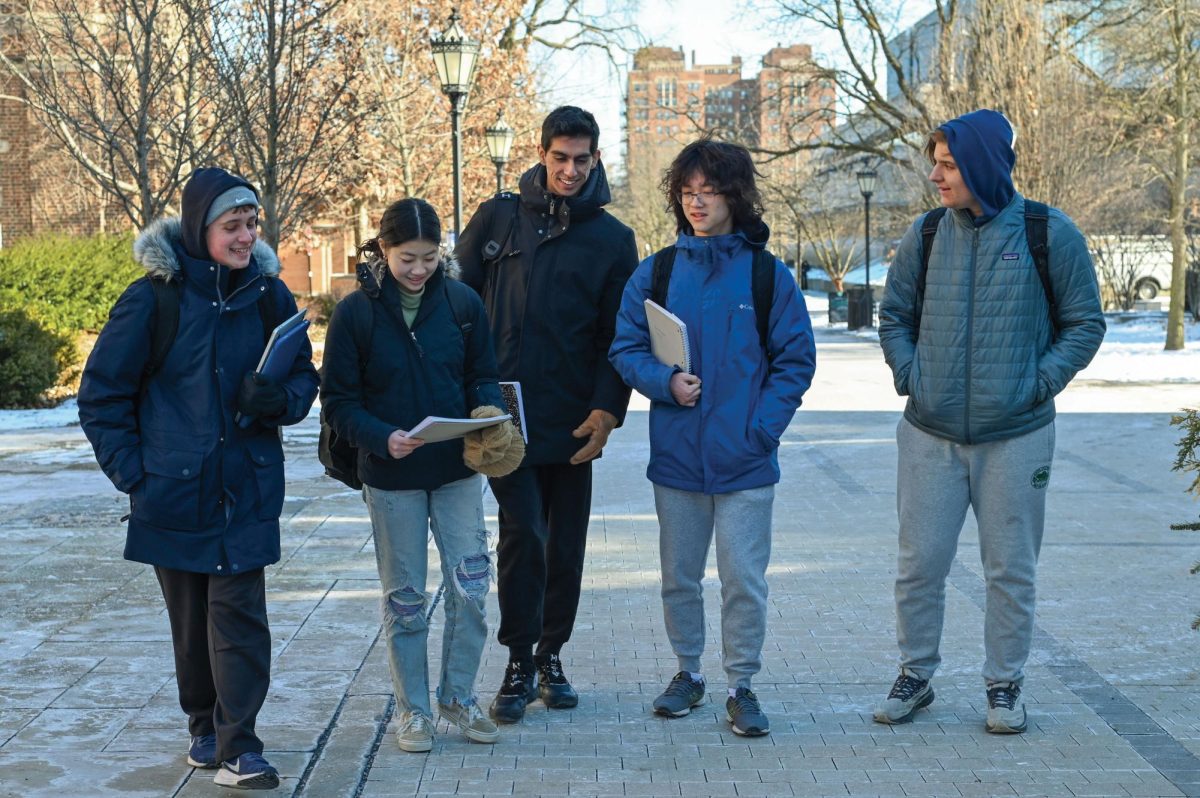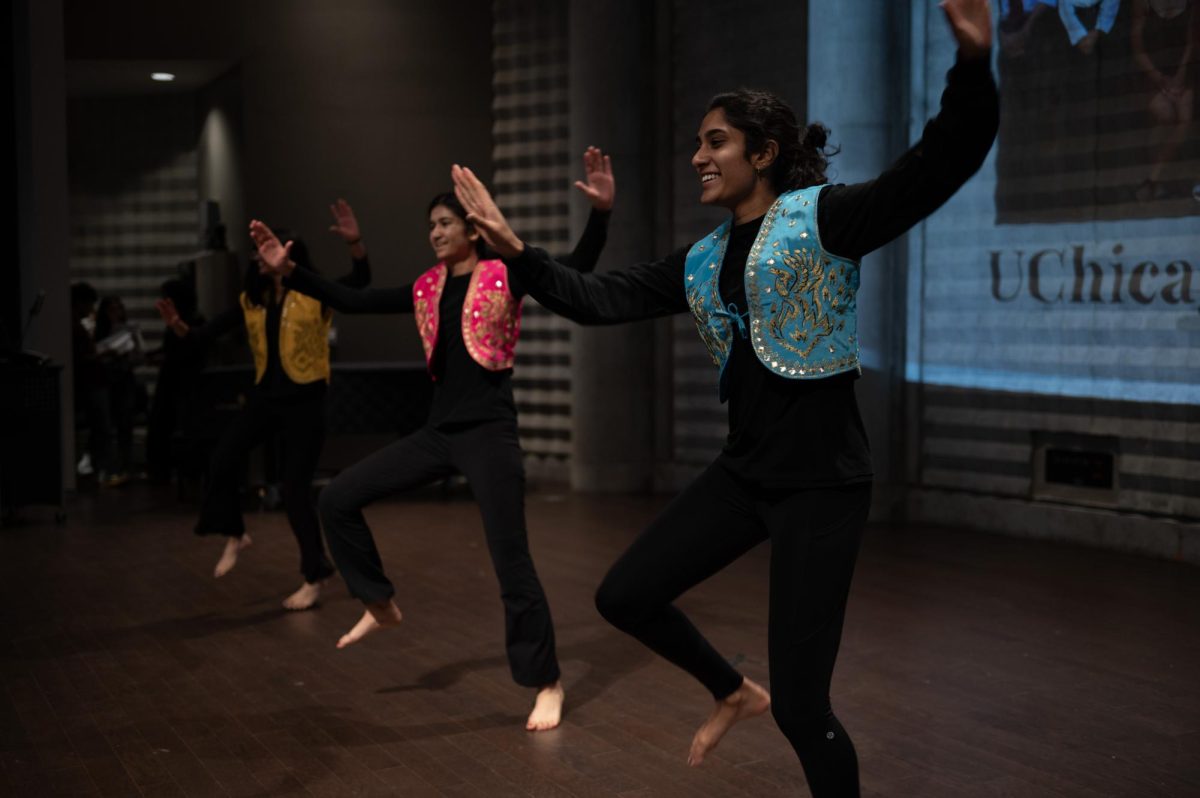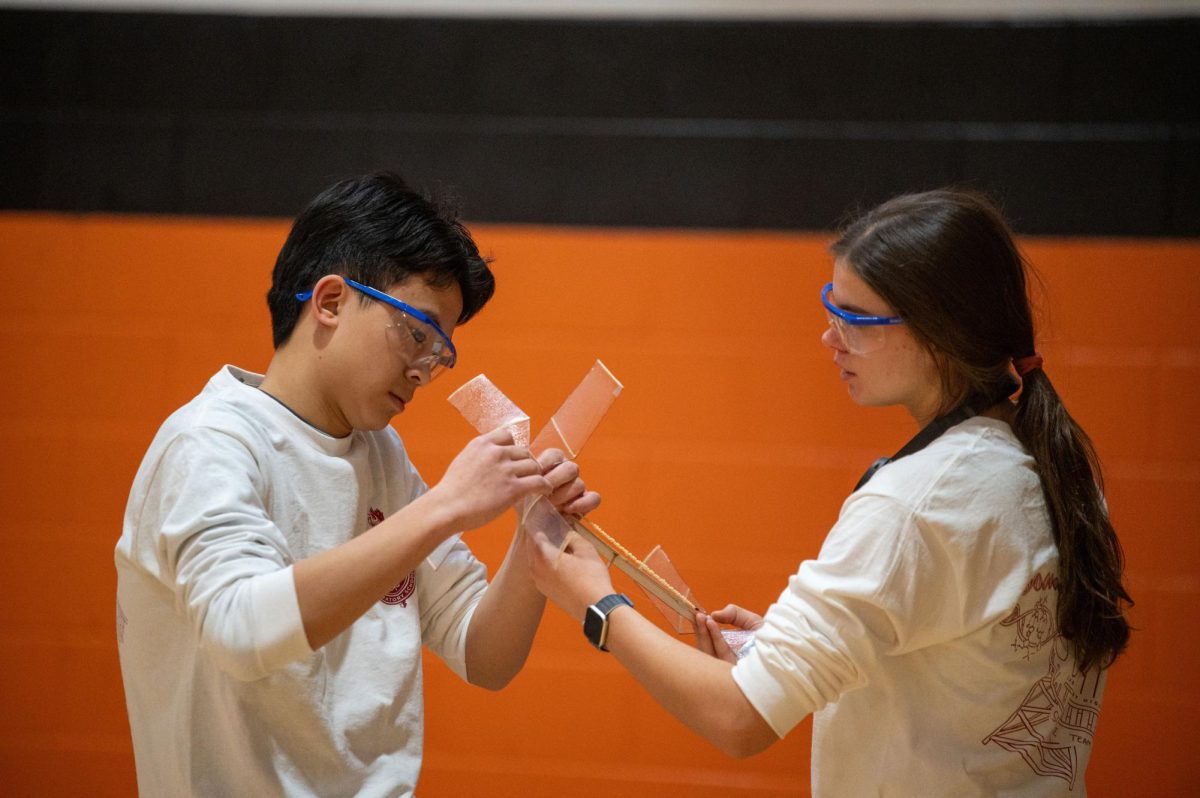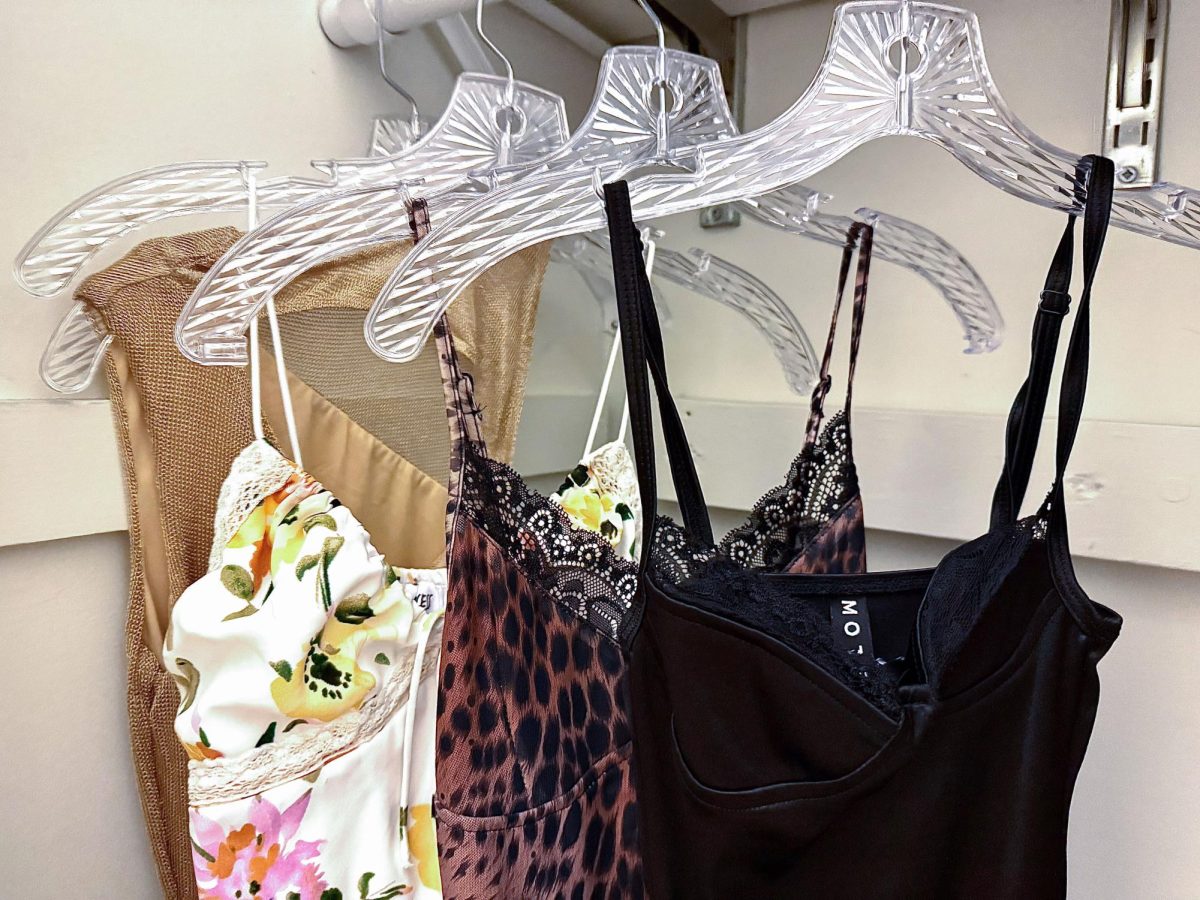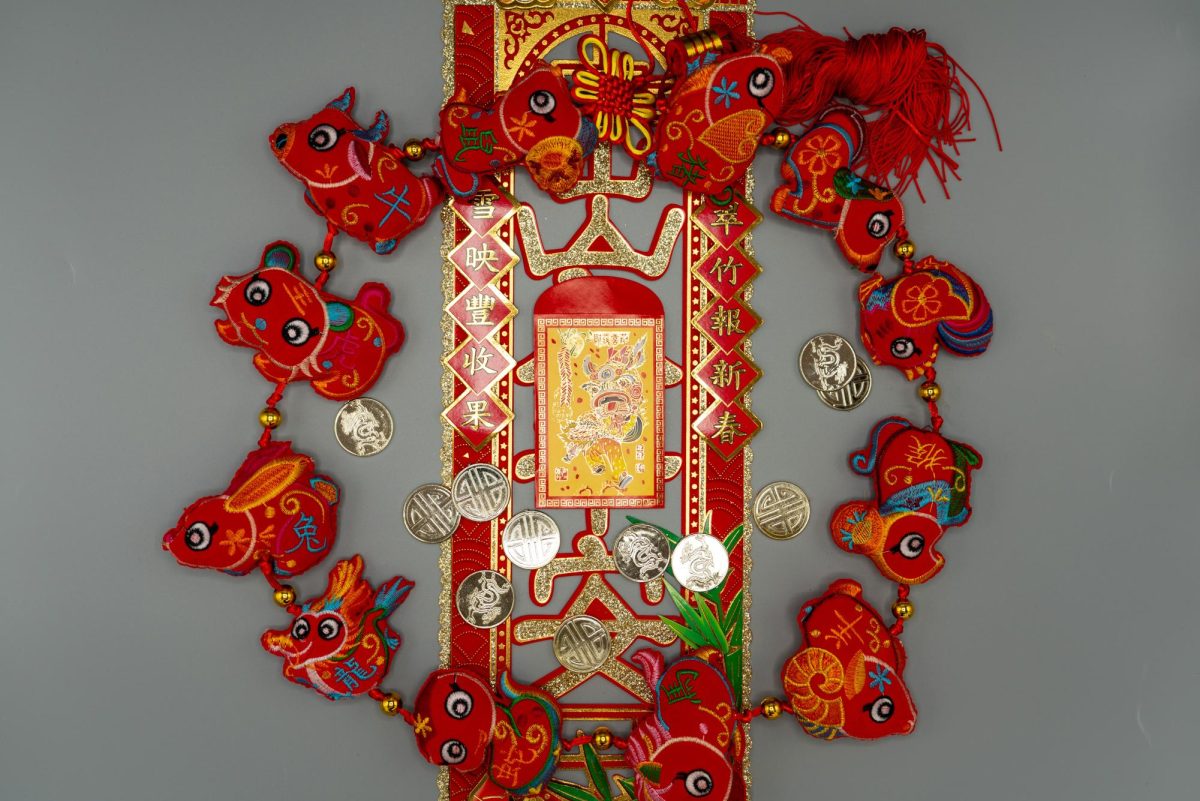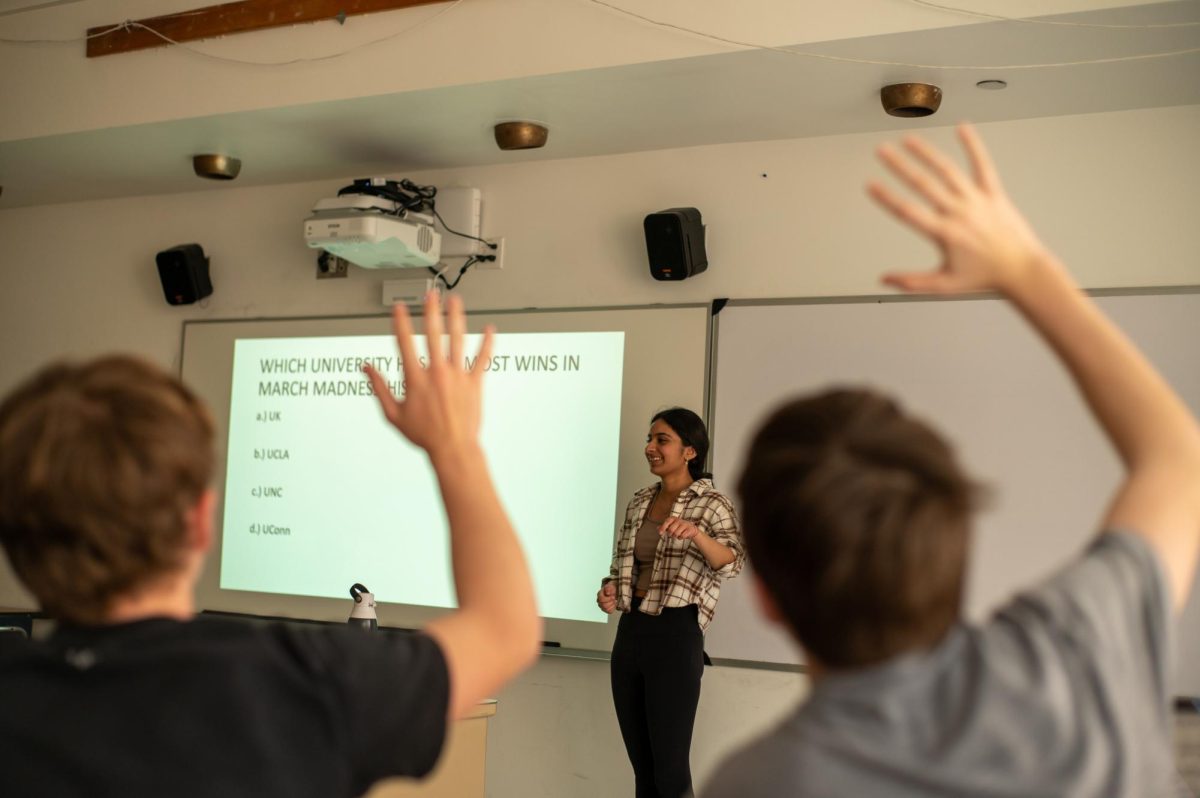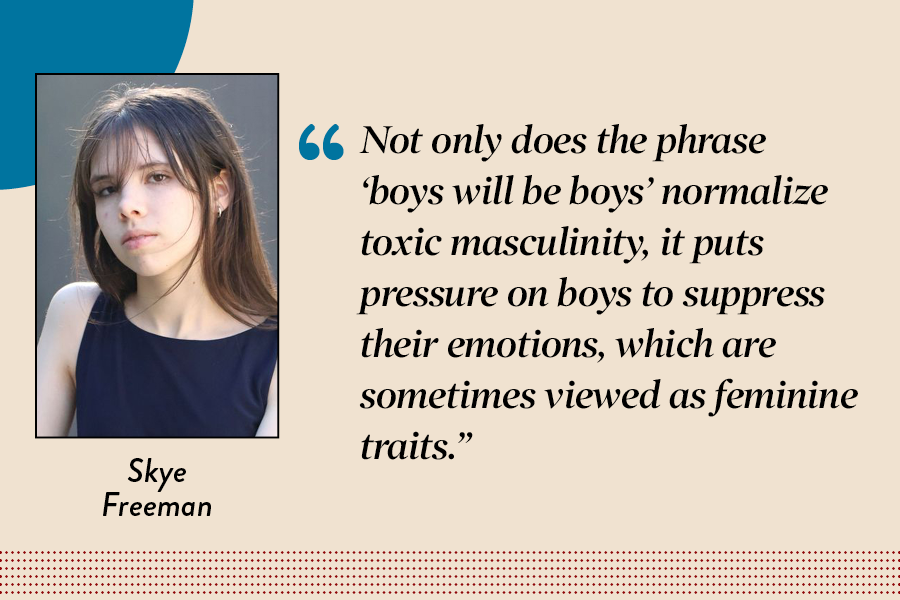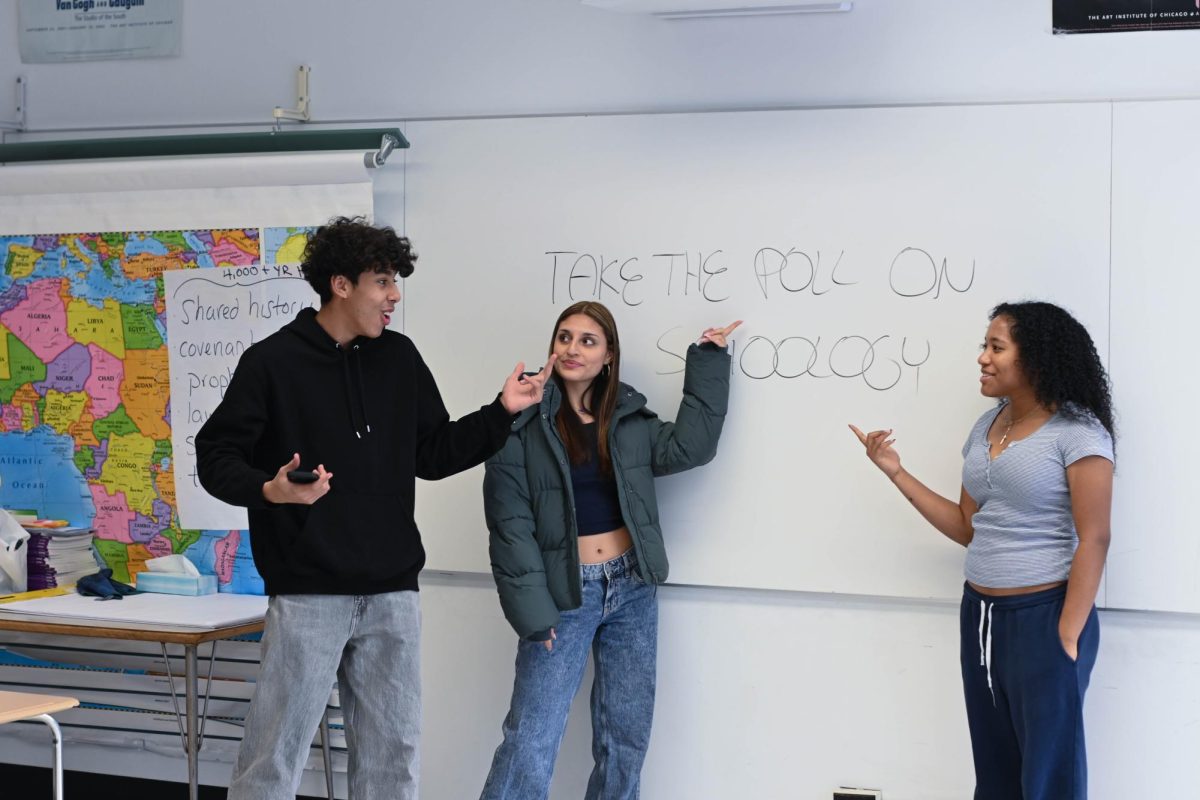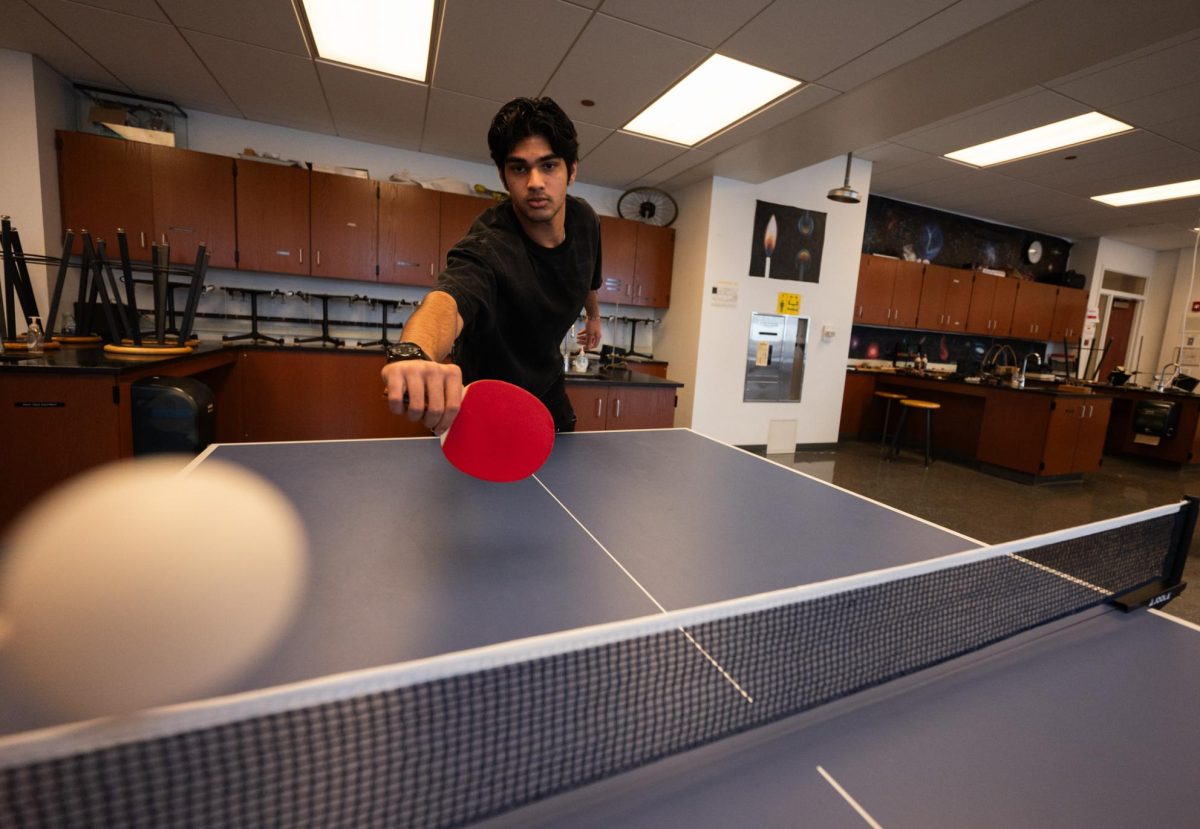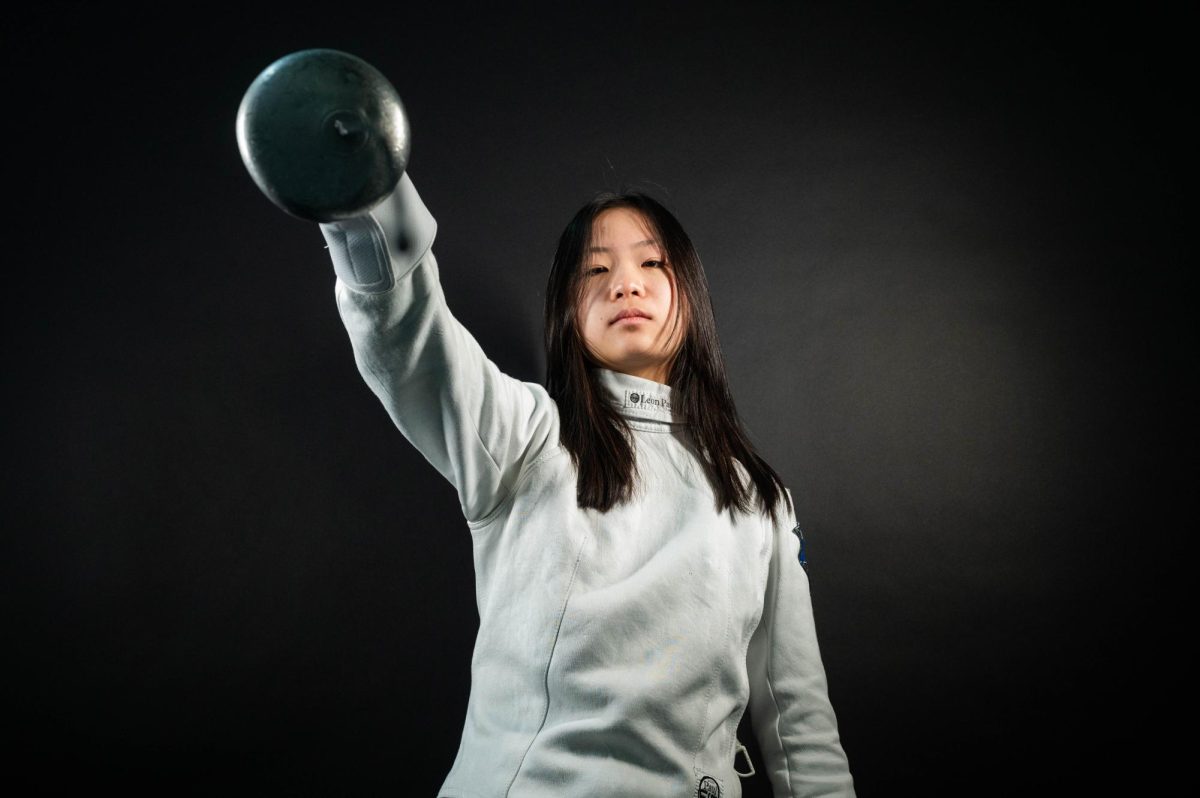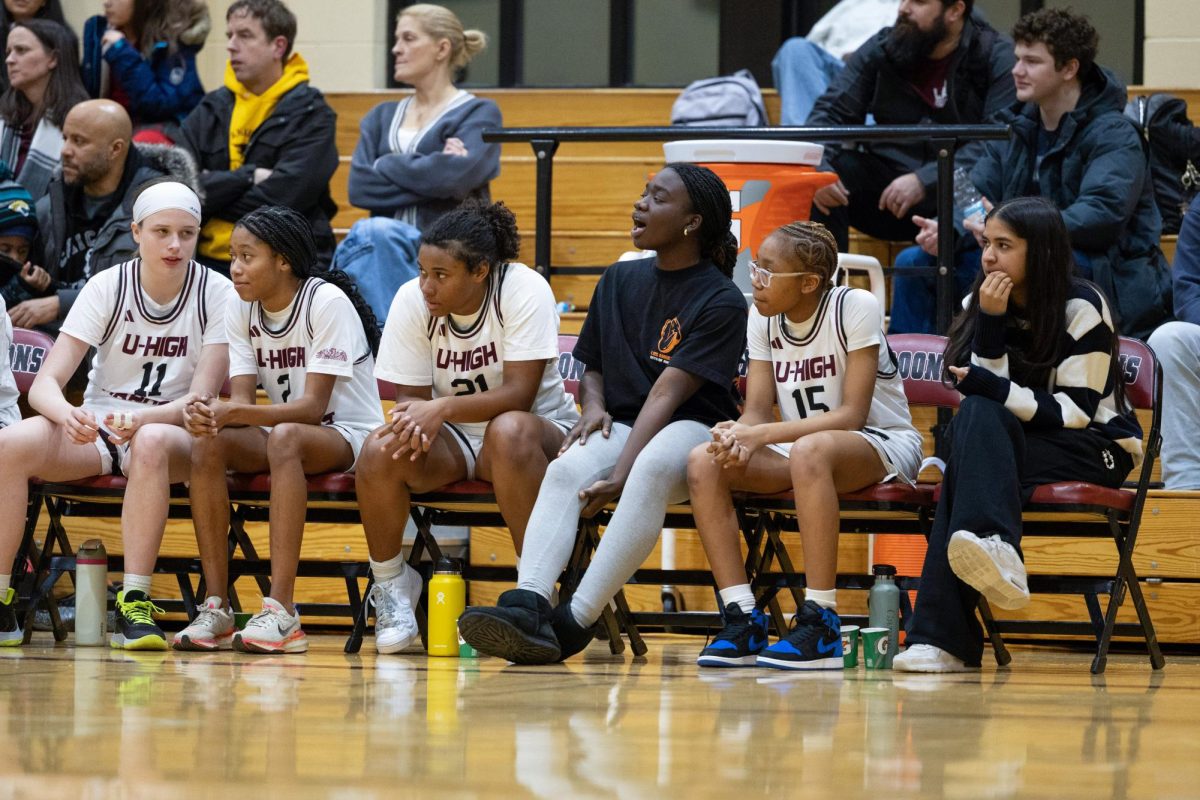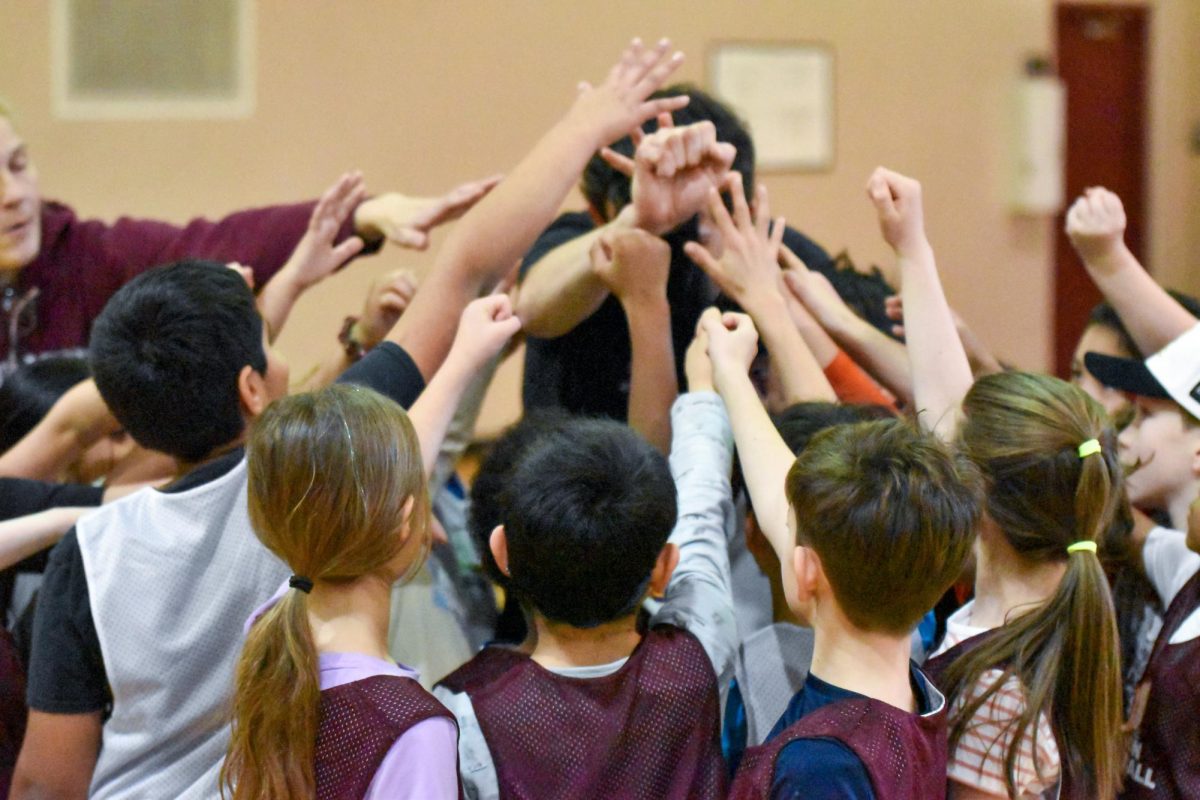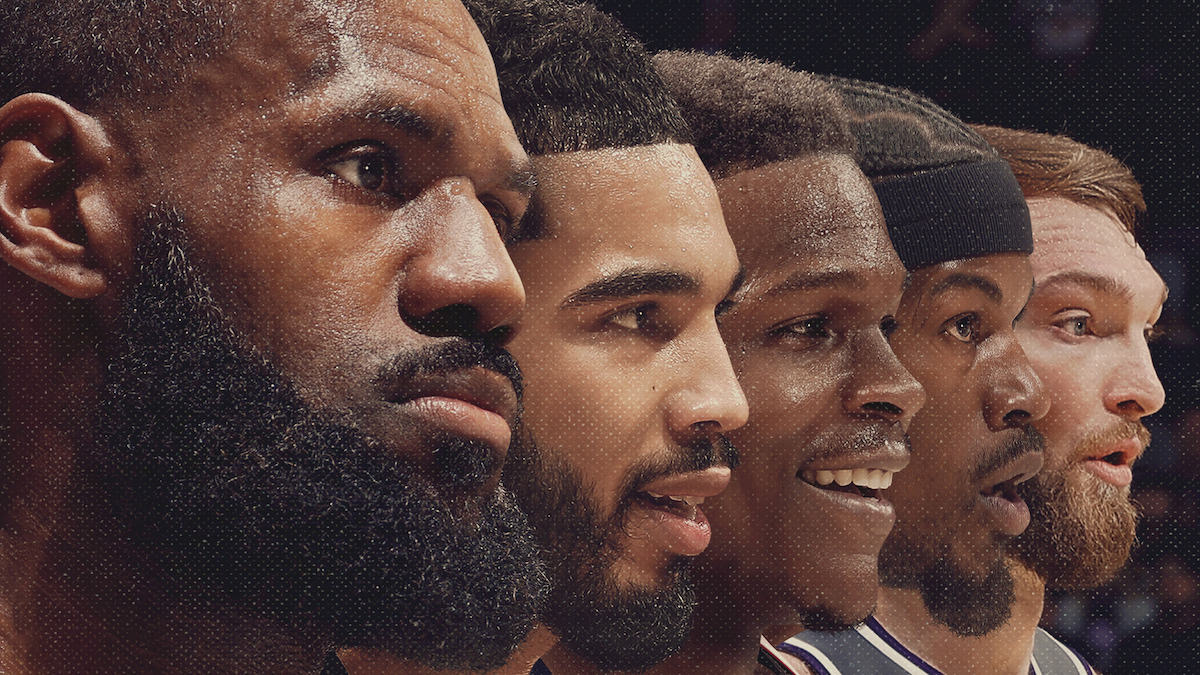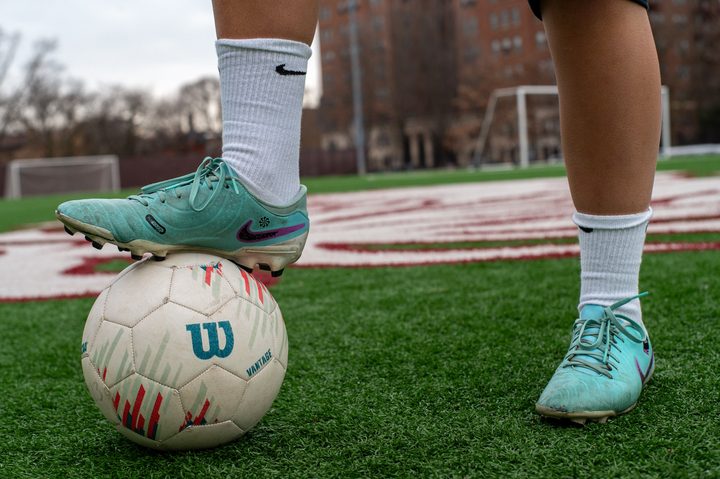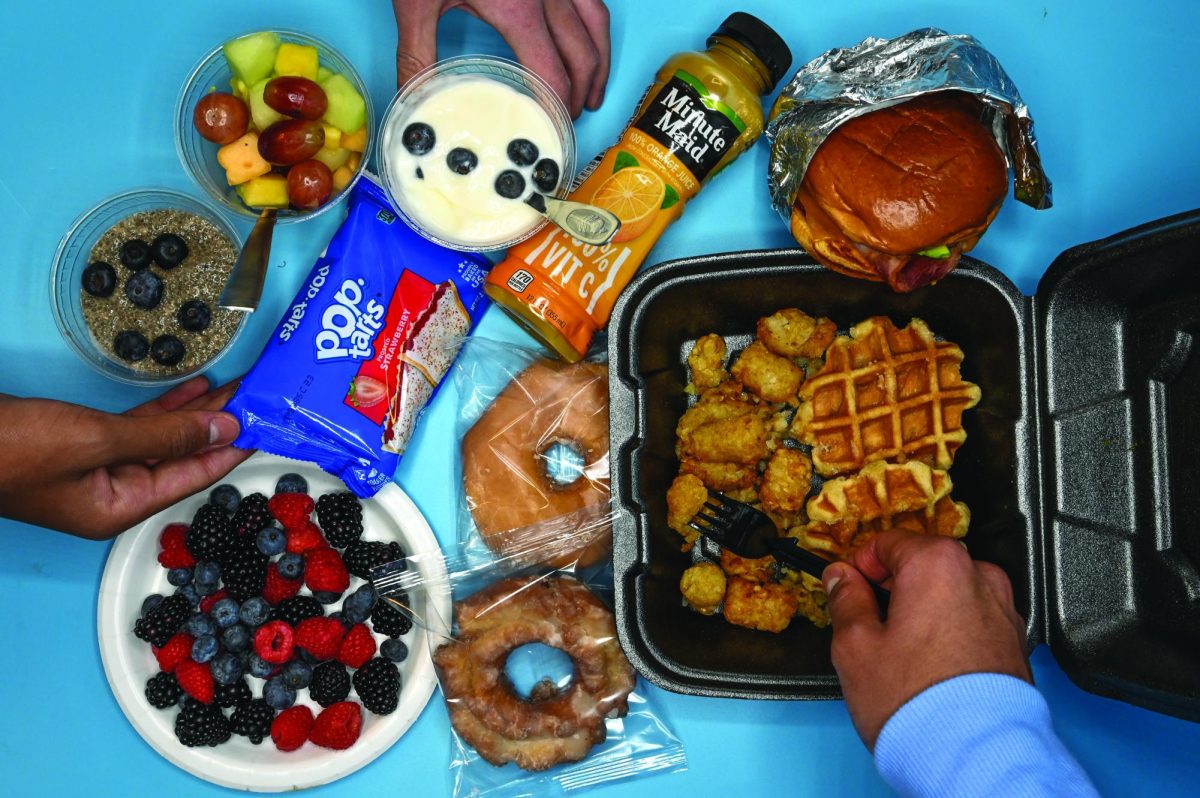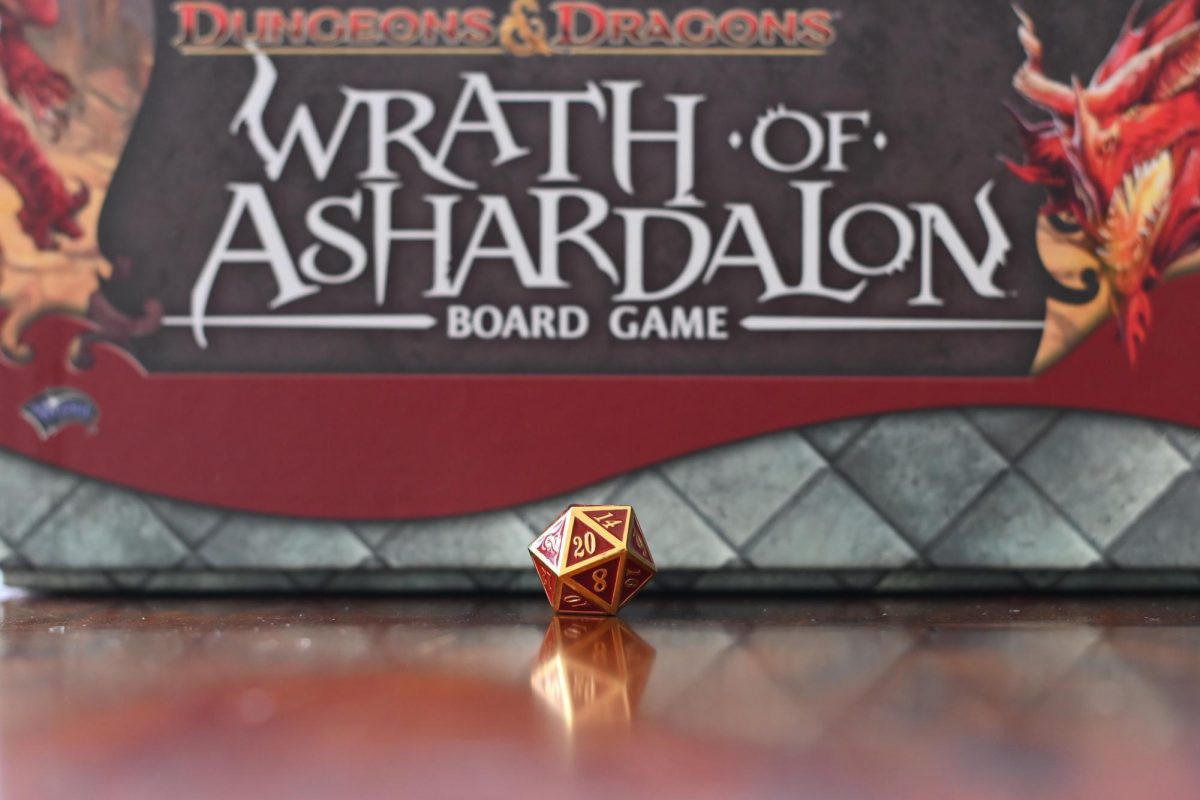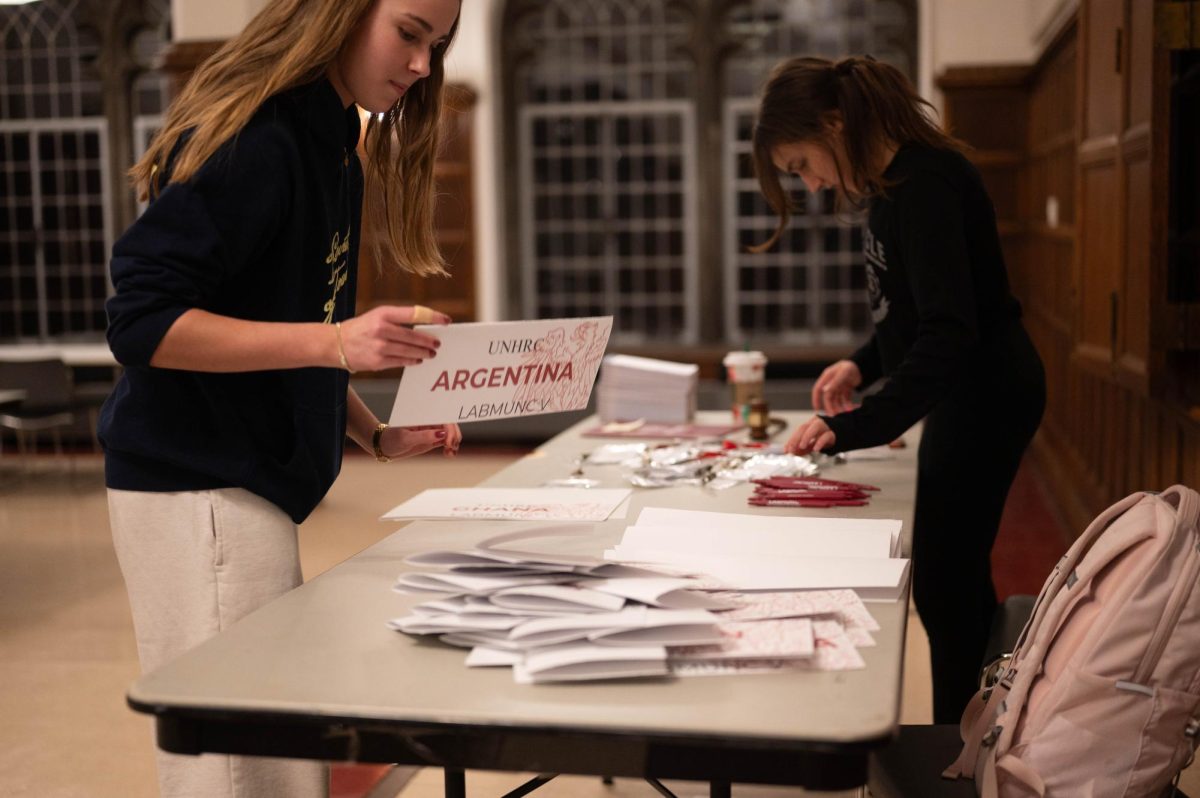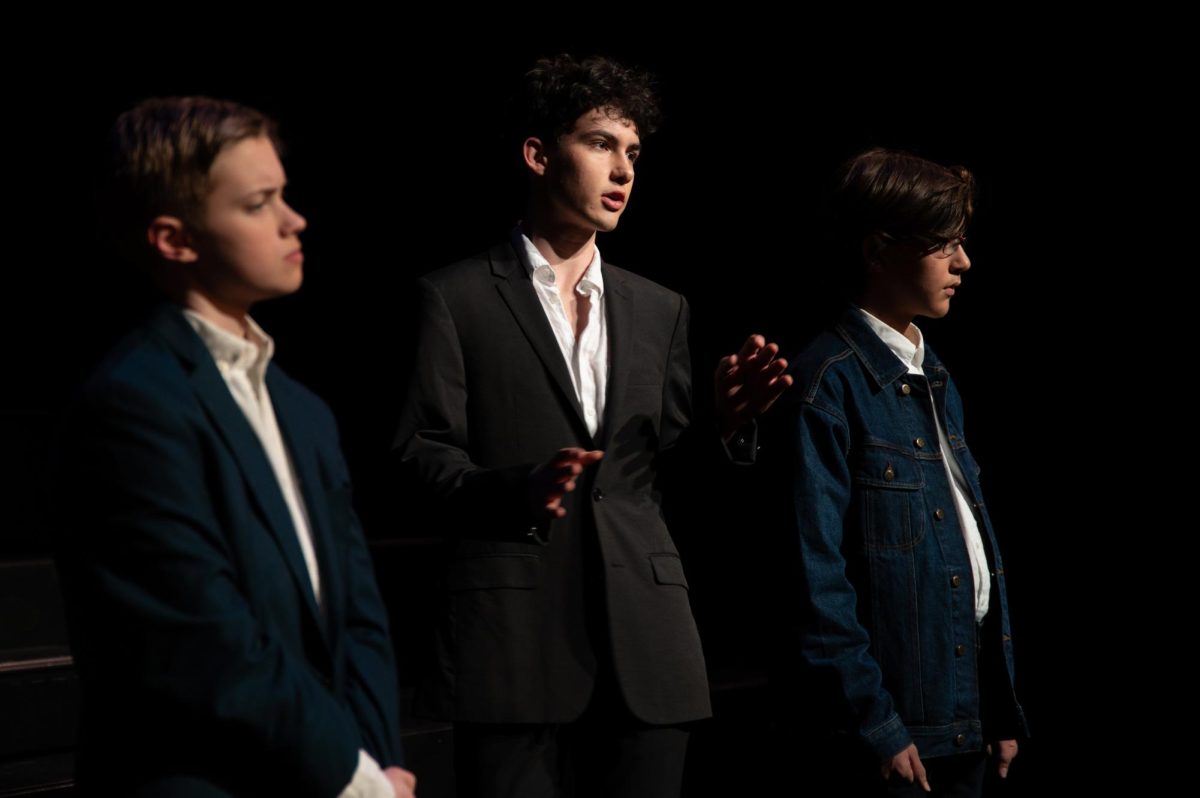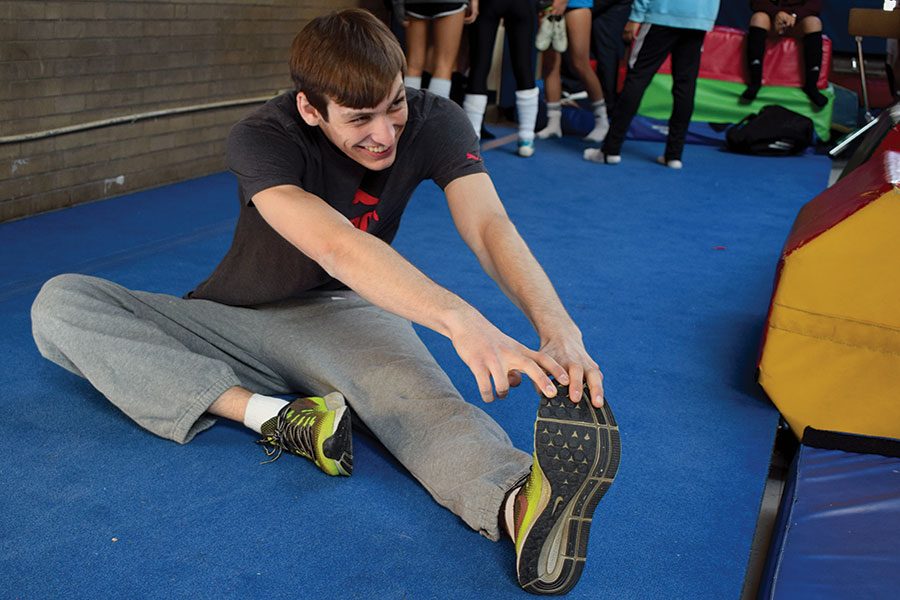Too few fielders
Less support for athletes competing in field events drains motivation, but more may join for spring season
Maria Shaugnessy
STRETCH IT OUT. Field athlete Eli Ginsburg stretches before practice after school March 11. Eli is one of only a few athletes on the Track and Field team that actually competes in field events.
March 12, 2019
Panting and sweating, track athletes race their competitors as they sprint past the large crowd cheering from the inside of the track the Midway Miles meet on March 1.
But at the sand pit in the dark, far corner of the Henry Crown Field House, a group of athletes lacks complete a series of leaps. None of their peers chant for these athletes. These hardworking jumpers perform their skills in silence and without the same motivation that their track counterparts receive. Track athletes are often talked about and praised, but the field athletes who train just as much are rarely mentioned.
Eli Ginsburg, a junior competing in his third season of triple jump, initially began because of a vote of confidence from his coach. Mikaela Ewing and Mayher Kaur started long jumping also as a result of encouragement from their coach, when all the track athletes were asked to try field events. Eli, Mikaela and Mayher were the only jumpers that prevailed.
Mayher said, “Having Eli and Mikaela to train with me gives me enough support to do well in events and the coaches can section out time to work with us during practices.”
Collectively, the three jumpers say they are grateful to train with each other, but without the same attention that is given to track, it makes it harder to find motivation. Eli said he struggles to keep track of time in practice because he has no other male teammates to keep him focused. Mikaela agreed that field athletes must have more dedication to train alongside mostly track athletes.
“It’s difficult to manage your time in practice as a field athlete. You have to make sure you’re well prepared for both track and field events at meets,” Mikaela said. “You need to complete the requirements of your field event as well as check in for running races. It is challenging to make sure you’re present and attentive.”
The three field athletes explained that due to the lack of participation in field events, the school is losing overall team points. However, U-High is not alone. At many meets, field events have few if any athletes competing, but according to Mikaela, if the school did enhance field training, the team would be able to pick up easy points.
Last year, the boys track and field team lost ISL to Northridge Preparatory School, who won the competition four years in a row due to their heavy involvement in field events. Because of this defeat, coach Alex Clark recruited junior Nolan Issa to participate in shot put in the coming spring season to boost U-High’s chances of winning. Additionally, Clark has convinced Adria Wilson and Alex Stevanovich to try out high jump, with Adria pacing third at the Midway Miles meet.
“Right now, no one is throwing, high jumping or pole vaulting. Because we don’t have coaches for shot put during the indoor season and the nearest training facility for pole vaulting is at least an hour away, it is difficult for student athletes to participate in those events,” Mayher said. “We have a great coach for the long and triple jump, making it easy for the athletes interested in jumping to do so.”
Despite the coaching available for possible jumpers, many track athletes still do not participate.
“I think people don’t do them because they either don’t know they exist or they think it’ll be too hard,” Eli said.
The field athletes explained that U-High should cheer just as loudly during field events and encourage students to participate in events such as long jump and triple jump in order to build a stronger track and field team.


